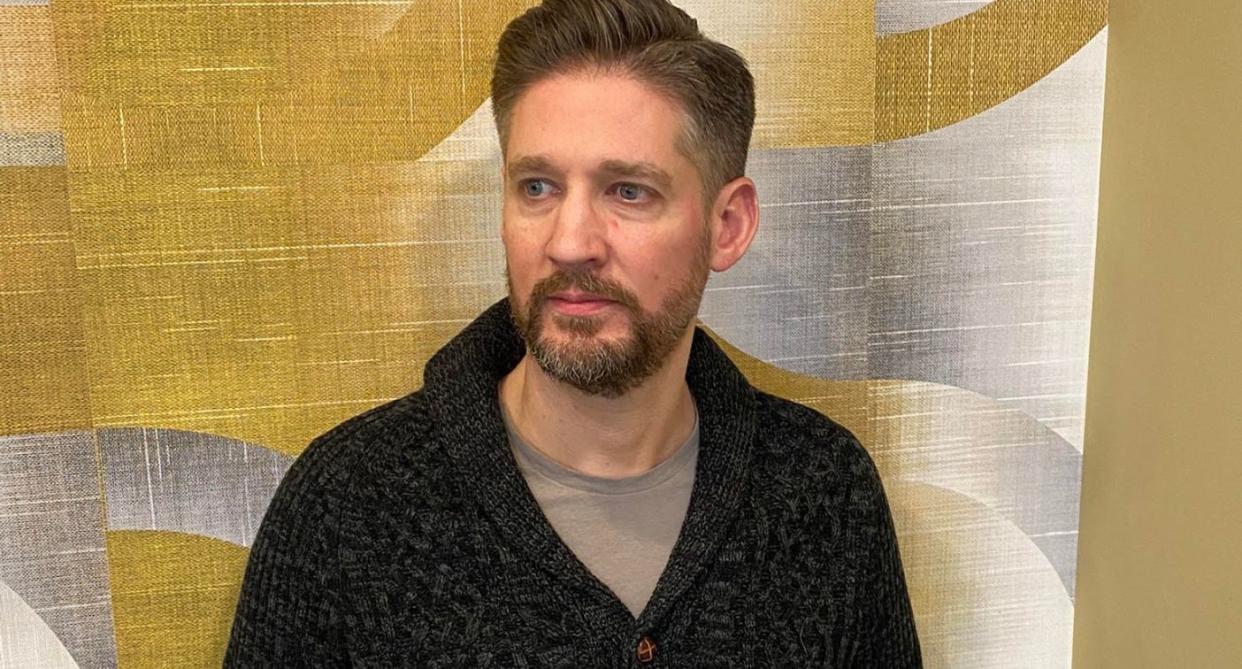What is 'AuDHD' and why are more being diagnosed with it?

You've likely heard of the rising rates of ADHD and those seeking a diagnosis, largely due to a growing understanding that it's not just something naughty school boys have.
We're also realising autism is often left undiagnosed for years, especially in women, and are starting to embrace neurodiversity and a different way of thinking, rather than seeing it as the problem (though we still have a way to go).
And with that, there has now come a rise of what has been dubbed 'AuDHD' – while the hashtag has nearly 275,000 posts on TikTok and even more views, it is far from just a 'trend'. A diagnosis of both autism and ADHD was deemed impossible to co-exist until fairly recently, but is life-changing for those now proving how wrong that was.
"I was diagnosed as autistic at 44 after both my children were, then a year later I was diagnosed with ADHD after my wife and children had been too. I have found there is a lot of looking back over my life and unpicking what I said or did, now I know I am neurodivergent," says Kelly Grainger, neurodiversity speaker and co-founder of Perfectly Autistic.
So, here's a look at exactly what 'AuDHD' is, why more are being diagnosed with both, and why professionals should be familiar with a range of neurodivergent conditions when making assessments.
What is 'AuDHD'?

"'AuDHD' is a term many autistic individuals who also have ADHD use to describe themselves," says Dr Fleur-Michelle Coiffait, consultant clinical psychologist, associate fellow of the British Psychological Society and clinical lead for neurodiversity at Spectrum Life.
"Autism and ADHD often co-occur, with recent research suggesting that 50-70% of autistic people also meet diagnostic criteria for ADHD." Dr. Coiffait has ADHD herself, while her daughter is autistic and due to be assessed for ADHD.
"The combination of both," explains the psychologist, "results in a unique pattern of strengths and challenges that differs from what we see when someone experiences only one of these, as aspects of each can compensate for, complicate and mask the other."
While everyone is different, for Grainger, he says, "I find that my autistic brain and my ADHD brain are often at odds with one another, fighting for control, which is incredibly challenging. On the one hand my autism brain doesn’t like change, it wants perfection and order and to know exactly what is happening, every minute of the day. On the other hand is my ADHD brain, fast, carefree, full of energy and buzzing with hundreds of thoughts and ideas all at once.
"I find that my autistic brain and my ADHD brain are often at odds with one another, fighting for control
"This can often be mentally exhausting. But it has also shaped who I am and is the reason I have been successful in many areas of my life."
Dr Coiffait says research has identified differences in the prefrontal cortex brain region in both autistic and ADHD individuals and there is also evidence of similar genetic factors and heritability, although this is complex and not yet fully understood.
'AuDHD' from then to now – why the rise?
"It is likely that this was always there, rather than the actual numbers of neurodivergent individuals increasing, but we have become much better at identifying it," says Dr Coiffait.
So how did we get here? Dr Jessica Eccles, spokesperson for the Royal College of Psychiatrists, explains, "Historically, people have either been diagnosed with autism or ADHD. While these are two distinct conditions, our understanding of them has grown, and it has become increasingly clear they can co-exist."
Why were ADHD and autism previously considered mutually exclusive? "Until 2013 when the latest version of the Diagnostic and Statistical Manual of Mental Disorders was updated, the previous edition listed autism as an exclusion criterion for ADHD," says Dr Coiffait
"Part of the reason that it was previously thought that autism and ADHD couldn’t occur together is because many of the traits appear to contradict each other [as described above]."
Since the revision of the diagnostic criteria for ADHD and autism, Dr Coiffait says it "has resulted in more people exploring whether these diagnoses could help them understand their experiences" and "many more people have been identified with both".
Dr Eccles points out we don't know exactly how many people are being diagnosed with both conditions but – due the high estimates of autistic people also potentially having ADHD – it's possible we'll start seeing this occur more in the future. For now, it's evident across social media, online neurodivergent groups and among experts in the field.
Who is experiencing 'AuDHD'?

"There are no readily available figures regarding people being diagnosed with both and their ages and it may be that they are diagnosed at the same time or years apart," explains Dr Coiffait.
"In my clinical experience, I am working with more and more adults where they experience both and this may explain why they have reached adulthood before it is identified as the picture can be less obvious when both occur together. However, I am also seeing many children and young people where a combination of both contributes to their individual picture."
Diagnosing ADHD and autism

So what does the diagnosis process look like for both? "There is no blood test or single biological marker for either ADHD or autism and they are both identified on the basis of reported (by the individual themselves and/or others who know them well) and directly observed indicators set out in the diagnostic criteria (things that the assessing professional sees and experiences through directly interacting with and spending time with the individual).
"However, the NICE guidance for assessing autism and ADHD identifies key elements of a good assessment that should form part of both types of assessment."
Dr Coiffait believes it's important professionals are always looking to learn and update their knowledge and follow the most up to date evidence-based guidance. "Many professionals, me included, did not have access to the knowledge that is now available when we completed our training."
She also says it's important professionals are familiar with both ADHD and autism and both are considered in assessments, along with other forms of neurodivergence (e.g. dyspraxia and dyslexia), to help paint the whole picture and unpick what is what.
Professionals assessing for autism and/or ADHD should be familiar with both, as well as other forms of neurodivergence, so they can unpick what is what
Dr Eccles acknowledges that both autism and ADHD services have seen a significant rise in the number of people coming forward for support, which has led to increasingly long waiting times. "We need more investment, as well as joined up services, to ensure people receive a timely diagnosis and high-quality follow-up support," she says.
"People who have traits associated with autism and ADHD should also be offered reasonable adjustments at school or work while they wait for an assessment," Dr Eccles adds.
Managing 'AuDHD'

"Autism is not something that we should be looking to ‘treat’ or ‘remove'," says Dr Coiffait.
"It is a different way of thinking, making sense of and understanding the world that also brings many strengths and positives and enriches our world," she emphasises. "The reason it presents difficulties for autistic people is because they are in the minority, in a world designed by and for the majority – which is neurotypical people. The mismatch between autistic thinking and behaving and neurotypical thinking and behaving is what presents challenges for many autistic people."
And on ADHD medication (for those who choose to take it), she explains, "It does not tend to change core features of autism if someone is AuDHD. ADHD medication can reduce aspects of their ADHD and make these less obvious, which can in turn result in their autistic features becoming more obvious or apparent. Various medications are used to treat ADHD features if they are causing challenges for an individual and each person will respond to these differently.
"Therefore, those prescribing ADHD medication (paediatricians, psychiatrists or nurse prescribers) carefully monitor and review ADHD medication regularly through a process called titration, in order to identify the most beneficial medication and dose for that individual that improves their quality of life and functioning with minimal side effects. For AuDHDers, it is important that their prescriber is skilled, experienced and familiar with working with people with both autism and ADHD."
Dr Coiffait adds, "I firmly believe that neurodiversity, the diversity of all our different brains, is something that enriches us and is essential to our survival as a species, in the same way biodiversity is for other living species on Earth."
"Neurodiversity is something that enriches us and is essential to our survival as a species
Read more:Living with undiagnosed ADHD felt like I was always chasing my tail (Yahoo Life UK, 8-min read)
Read more: I've built a £1m business despite having ADHD, ME and autism (Yahoo Life UK, 6-mn read)
Watch:NHS cannot meet 'avalanche' of demand for autism and ADHD services, warns thinktank


